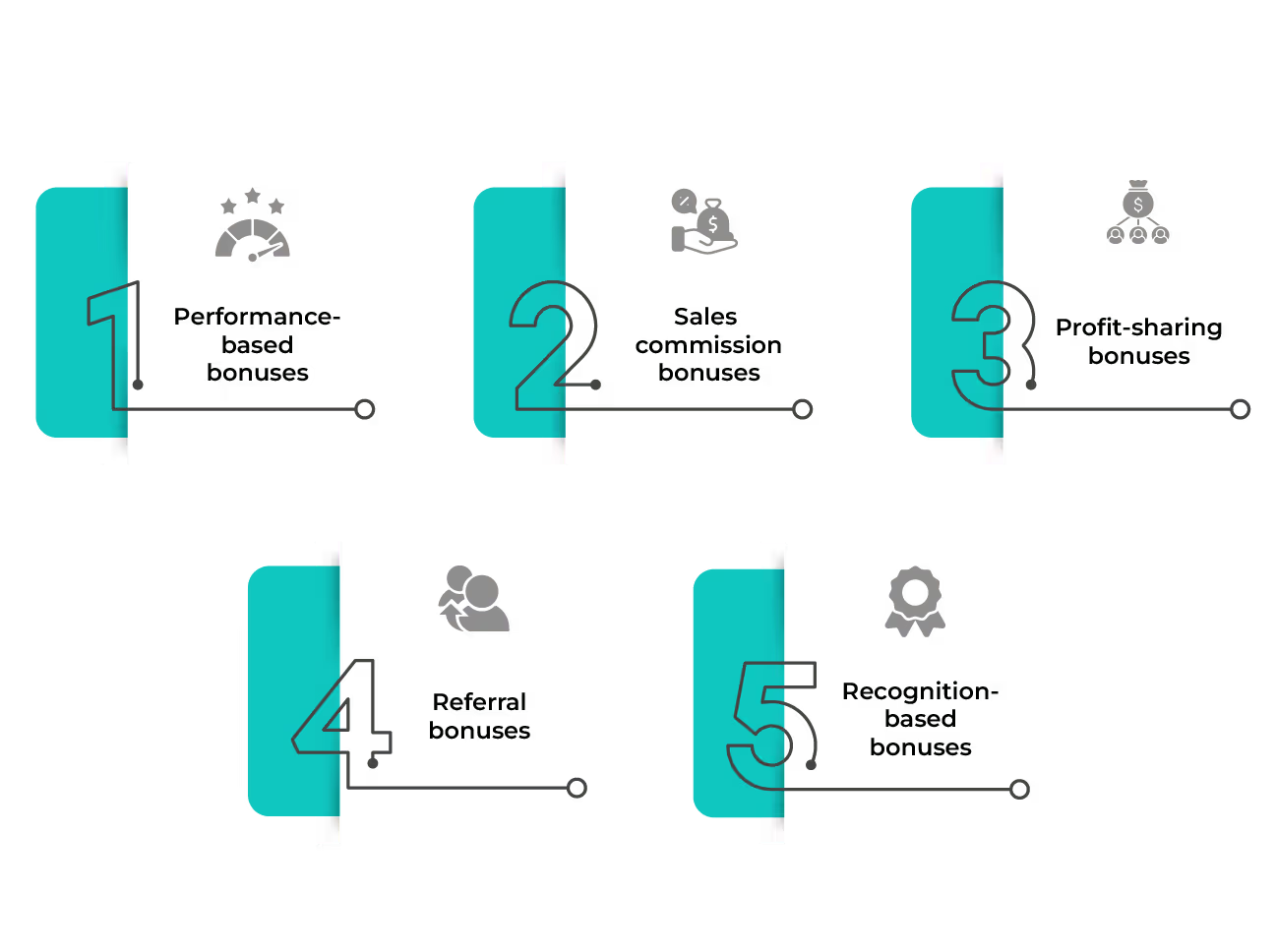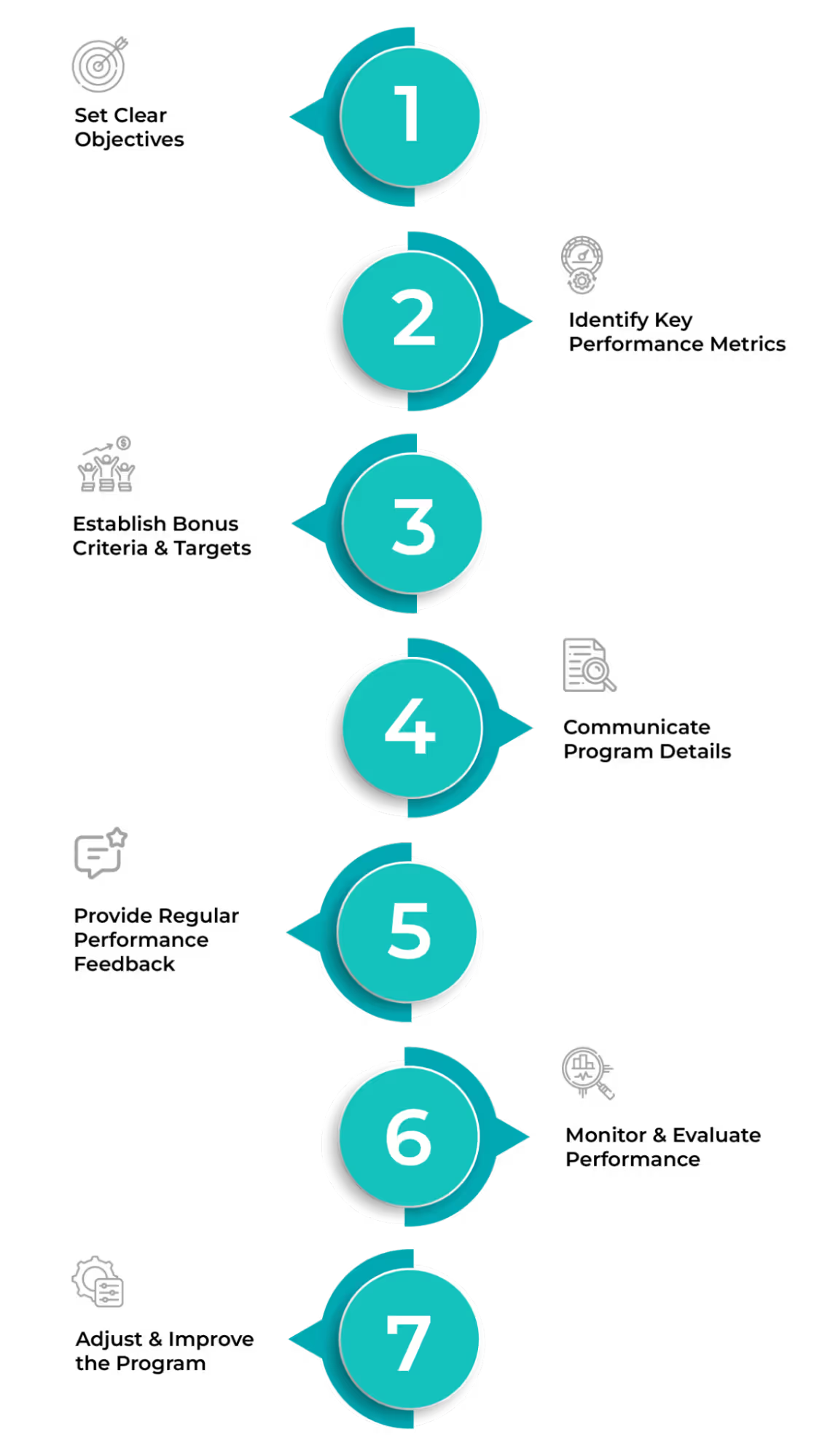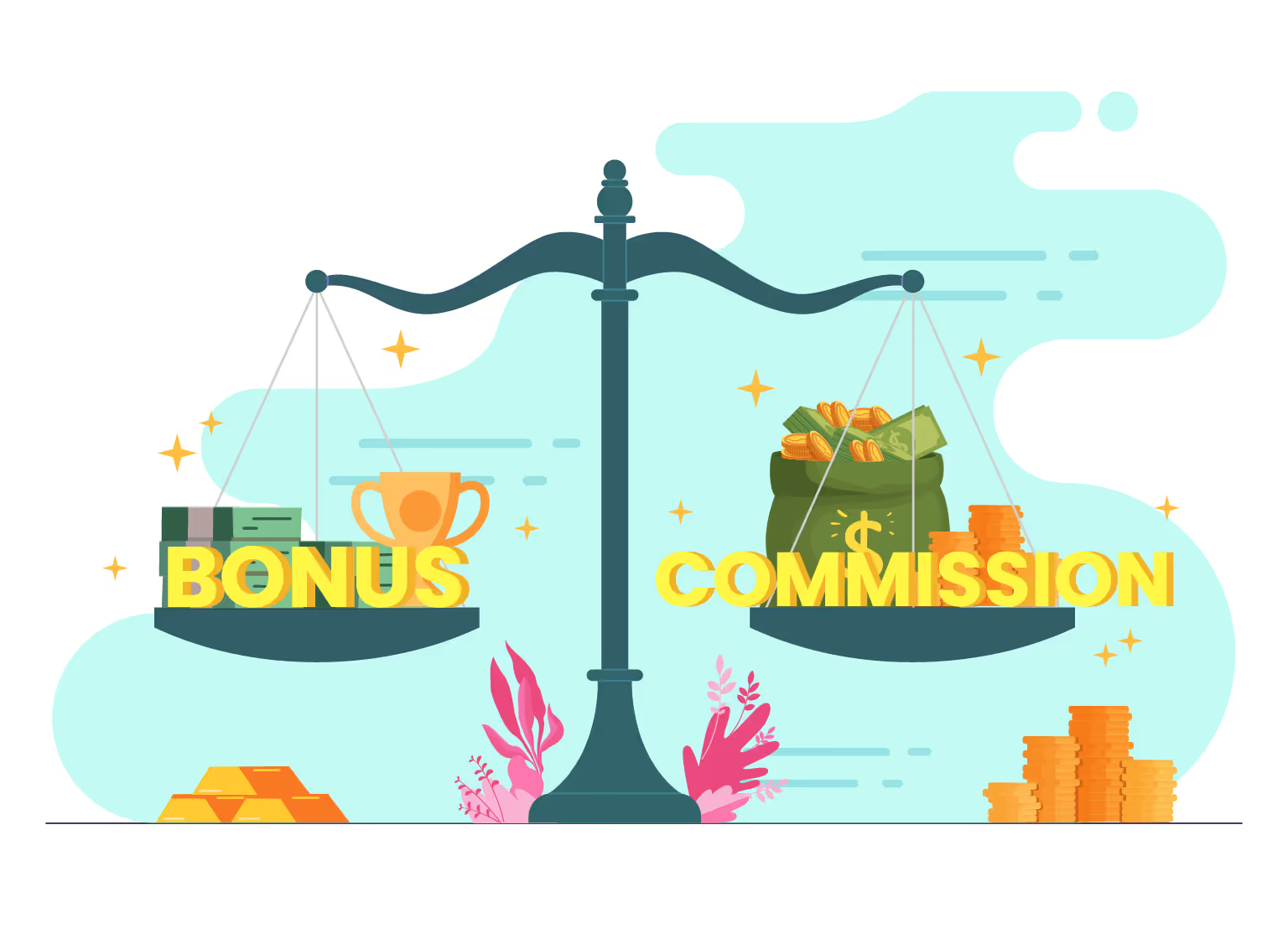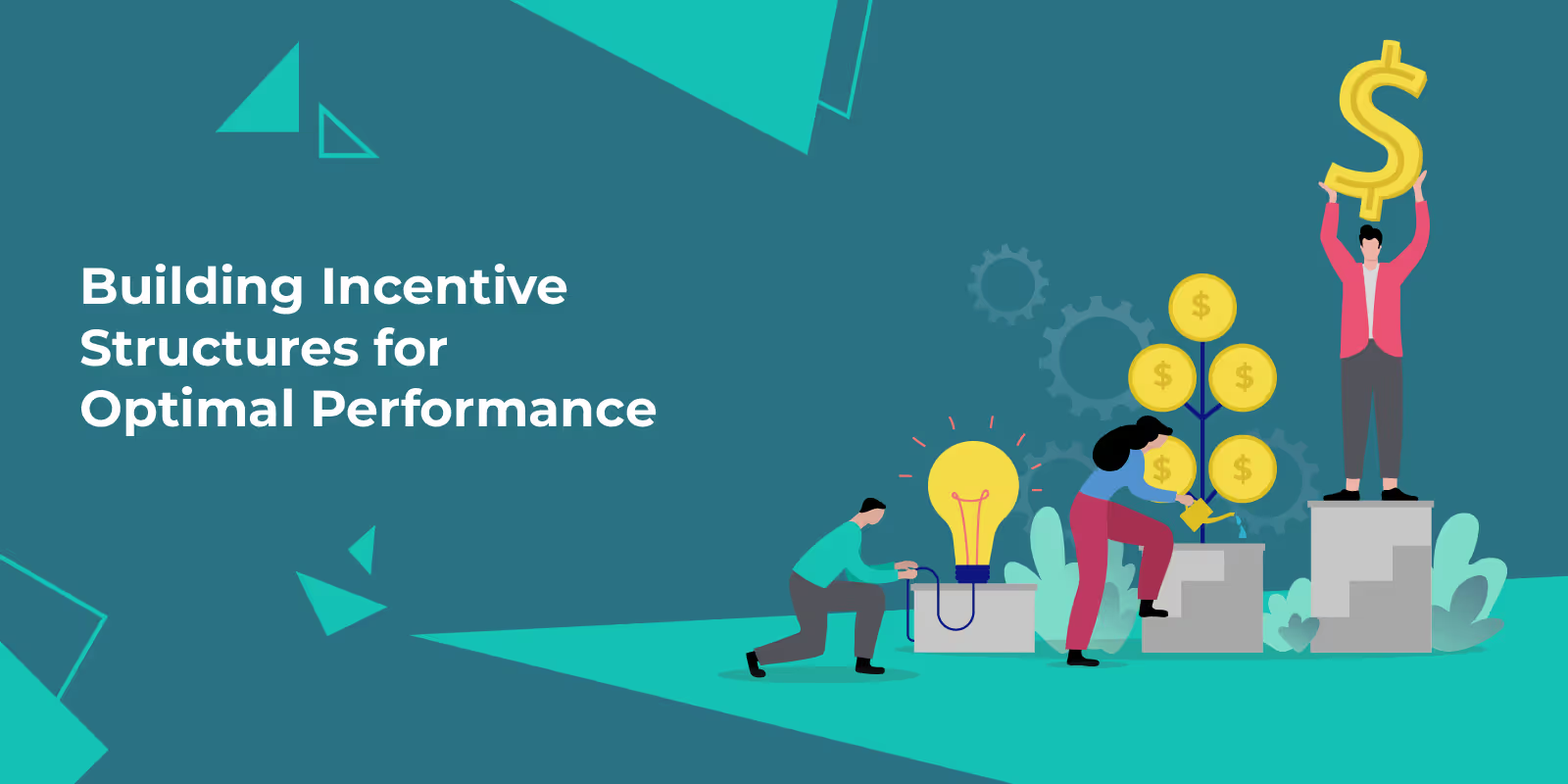
Blog
Guide to Incentive Bonus Programs: Motivate Your Team
May 13, 2024


Key Insights
Imagine building your Incentive bonus program as assembling a Lego figure.
You have the blocks, instruction manual, and other accessories to start building. You start by placing one block after the other.
It is not necessary that you get it right on the first try. You dismantle the wrong pieces, join the new ones, and check. Slowly the figure starts forming as in the manual.
Building a Lego figure does not happen in a speck of a minute. It requires thought, time, effort, and patience to complete the task.
Similarly building an effective incentive bonus plan is also a trial-and-error process. You build a structure, find loopholes and challenges, and try to resolve it…. And the process continues.
By this time you would have put a lot of time, effort, and money into improving your incentive program.
That's why we have created a comprehensive “Lego” manual for building an effective incentive bonus plan.
In this manual, we explain what incentive bonuses are and their types. We give a step-by-step process for designing and implementing incentive bonuses. We help you measure its impact and overcome challenges.
We also suggest the best practices to take up and regulations to follow while considering your incentive bonus plan.
So if you are ready to assemble your own incentive bonus plan scroll down.
What are Incentive bonuses?
Incentive bonuses are rewards given to employees to motivate them and enhance their performance.
Offering financial rewards helps foster a positive work culture, enhance employee engagement, and align individual interests to company objectives.
Incentive bonuses can be monetary or non-monetary. Monetary incentives include cash bonuses, stock options, profit-sharing, etc. Non-monetary incentives are gift cards, paid time off, vacation, and other perks.
The eligibility criteria for earning incentive bonus pay depends on the company objectives, industry norms, and organizational culture.
Types of Incentive Bonuses
Lego has a wide variety of pieces and types. Depending on the structure you are building, its shape and size, the brick choice differs.
Similarly, companies too have a pool of group and individual incentive types to choose from depending on their business model, employee requirements, and preferences.
Let us look into this variety to understand what best suits your requirements:

Performance-based Bonuses
This bonus is awarded to employees who meet the predetermined performance metrics.
For example, a sales rep has a set sales target for the quarter. They will be eligible for incentives only when they perform well and achieve the set target within the time and budget.
Sales commission Bonuses
Sales reps are provided this incentive when they achieve the sales volume they generate.
For example, a sales rep closes a deal of $10,000. They are eligible for a 4% commission for making this sale. Thus their sales commission bonus will be $400.
Profit-sharing bonuses
Under this bonus scheme, when employees achieve their targets they become eligible for a percentage of the company’s profit.
For example, a sales rep will be rewarded a percentage of the company’s profit at the end of the fiscal year based on their tenure, salary level, or individual performance.
Referral bonuses
Referral bonuses are rewards employees earn when they suggest a qualified candidate who eventually gets hired.
For example, your company has a vacancy for a sales rep. You refer to a friend who ticks all the requirements. Once the friend gets hired and completes the probation period, you will be rewarded with a bonus amount.
Recognition-based bonuses
Not all incentives are monetary. Employees also look for non-monetary incentives that acknowledge their performance, contributions, and achievements.
For example, when an employee’s leadership quality leads to a positive result, they can be recognized through a word of appreciation or a leadership award. This created a sense of confidence and satisfaction in them.
To complete a Lego figure, you need to make use of different types of Lego types.
Companies must also use a combination of these incentive bonus plans to motivate employees, drive performance, and foster a positive work culture.
For further reading, check 20 Effective Employee Incentive Programs to Motivate Employees
The 7-step process to designing an effective incentive bonus program
Even while building a Lego you need careful planning and structuring. Often you follow the manual while assembling your figures.
So think about the thought, effort, and time you need to put into building an effective incentive bonus program.
Having a manual that details the step-by-step process makes the process streamlined.
Here's a detailed manual to assist you in crafting your own incentive bonus scheme:

Setting clear objectives for your employees
Be clear about what you expect from your employees. Set achievable targets and objectives to enhance their performance and productivity.
Identifying key performance metrics
Determine on what basis you plan to measure your employees. Setting key performance metrics makes the performance evaluation qualifiable, objective, and relevant.
Establishing bonus criteria and targets
Define the eligibility criteria for incentive achievement. Companies must define the target employees must achieve and the performance they must show to achieve their bonus.
Communicating program details clearly
Companies must ensure their employees are well aware of the incentive program. Clearly communicate the incentive program details. Be transparent about the commission, calculation, and payout.

Providing regular performance feedback
Inform employees about their progress towards achieving their bonus. Providing this feedback will help them improve and increase their chances of achieving their goals and commissions.
Monitoring and evaluating performance
Tracking performance and evaluating progress must be a part of your incentive design. This helps in ensuring the incentive program provides the desired result and outcome.
Adjusting and improving the program
Designing your incentive program is not a one-time task. Depending on the market dynamics and industry standards, it must be subjected to change and improvisation.
Following this structured process makes the entire process transparent and trustworthy. This helps ensure its effectiveness of employee motivation, driving performance, and overall success.
What are the effective ways of implementing incentive bonuses?
If not maintained with care a Lego structure can easily break. It needs constant care and maintenance.
Similarly, an incentive bonus is also effective when it is regularly monitored and maintained.
So here is a breakdown of the key steps you need to take to ensure effective implementation of your incentive bonuses.

Communicating bonus programs to employees
Communicate all specifics of your incentive program to the employees. This includes the eligibility criteria, performance metrics, payout schedule, etc.
Create platforms where employees can ask questions and clarify their doubts. Ensure clear and transparent communication to ensure employees understand the information.
Training managers and supervisors on administering bonuses
Conduct sessions for managers and supervisors to enhance their knowledge and understanding of the bonuses and incentives. They must be very clear about the incentive bonus: targets, eligibility, calculation, payout, etc.
Managers must also create platforms and encourage teammates to raise their queries. They must address these conflicts and try to resolve them fairly and promptly.
Monitoring and evaluating bonus performance
Companies must regularly keep track of the effectiveness of their incentive program. They must assign individuals and create systems to evaluate their performance and bring out desired results.
Using performance data, companies can understand their strength and identify the areas of improvement. This helps in maintaining the relevance of the incentive program and aligning it with organizational goals.
Adjusting bonus programs based on feedback and results
The most important part of implementation is remembering that this is not a one-type process. Managers must gather feedback from recipients about the effectiveness of the incentive program.
The market standards and industry trends are dynamic. Your employee needs and preferences are fast changing. This means you need to adjust and improve your incentive program to motivate your employees and drive desired behavior.
Designing an incentive bonus plan is the easy part. Effectively implementing and maintaining is the challenge.
Following these tips will help ensure your incentive bonus program remains relevant and brings the desired outcome.
How to measure the impact of incentive bonuses?
It's fun and joyful while building Lego. However, from a company perspective, the time and effort put into building the structure must provide some return on investment.
In assembling a Lego the return on investment is your sense of achievement and satisfaction.
In incentive bonus, this is measured by the impact your plan has on the recipients and the overall sales operations.
Positive changes in the workspace like enhanced performance and productivity, and better employee engagement are signs that show your incentive program is bringing the desired results.
Performance metrics like sales revenue generation, number of deals closed, win rate, etc. make this assessment objective and quantitative.
Companies can track if employees who earn more incentives show better performance than employees who earn less.
A direct evaluation of the effectiveness of your incentive bonus plan is gathering feedback from the beneficiaries. This helps understand how satisfied they are with the incentive program.
From a financial point of view, companies can check if the incentive program is giving you the required return on investment.
Companies can evaluate if the budget spent on incentive commissions enhances performance and sales. Increased employee retention and decreased turnout rates show that employees are happy in their workspace.
In short, if your workforce is happy and satisfied, shows higher performance, and exceeds their expectations, it means your incentive program works.
Strategies to overcome challenges in incentive bonus programs
When you buy a Lego pack, there might be chances that some blocks are missing, some are damaged, some have color variation, etc. Any of these issues can affect your assembly.
While introducing incentive bonus programs into your operations, there are challenges that you are bound to face.
Here is a list of probable challenges you might face and strategies to overcome them.
In the dynamic market, companies must be proactive in addressing challenges and implementing their strategic solutions. This helps in bringing the desired employee behavior and driving positive outcomes.
Best Practices for Incentive Bonus Programs
You have done everything in your power to enhance your incentive bonus program. From designing and implementing the incentive bonus pay to measuring its impact and resolving challenges.
Is there anything more you can do to enhance the process and results?
Surely, including some best practices in your everyday incentive operations can have a huge impact.
Here are some of these incentive bonus best practices to optimize your operations:
Align with Organizational Goals
Align your individual goals and performance metrics for incentive bonus programs with the larger organizational goals. This ensures that all individual efforts eventually help achieve the larger company objectives.
Set Clear and Measurable Objectives
Assign each employee with clear and measurable targets with timelines. These objectives must be relevant and achievable depending on the employee’s potential.
Communicate Transparently
Communication is key to the effectiveness of incentive bonus plans. Be transparent about the performance metrics, eligibility criteria, calculation formula, and other relevant information.
Tailor to Employee Roles and Preferences
Incentive bonuses must be customized considering the employee's specific role and responsibility. It must also take into account their needs, preferences, and requirements.
Offer a Mix of Incentives
Employees need both monetary and non-monetary incentives. While monetary rewards help in financial stability, non-monetary rewards ensure a sense of satisfaction and belongingness.
Regular Feedback and Improvement
Gather regular feedback from the recipients on the performance and effectiveness of the bonus. This helps in making improvements that ensure relevance and achievement of objectives.
Small steps make a long impact. Similarly, these small additions to your operations can make huge positive changes in your employee motivation and performance in achieving organizational objectives.
Legal and regulatory considerations of incentive bonus plans
Organizations must follow a set of legal and regulatory laws while handling their incentive bonus plans.
There are employment laws that clearly mark the terms and conditions of bonus payouts. Companies must ensure they adhere to the minimum wage requirements, pay for overtime work, and follow the incentive promises when exceeding expectations.
Incentive bonuses are also subjected to taxation or revenue recognition. Depending on the nature of the reward, time of taxation, and jurisdiction, the taxation process can vary.
With legal aspects of incentive bonuses ranging from employee rights to tax laws, companies need legal mentorship to ensure they tick all the boxes on the checklist.
Seeking the help of tax experts and HR professionals will help companies straighten out a system where their incentive bonus complies with all the required regulations.
Companies must cross-check and ensure all these specifics are followed. Only then can they ensure they are being fair to their employees, complying with the rules of the land, and running transparent operations.
Conclusion
You have followed the manual, arranged the right pieces, and completed the Lego figure.
But does that end the fun and purpose of Lego?
Absolutely no.
Even after assembling a full figure, you can still dismantle and make a new one depending on your changing mood and interest.
Similarly, you can dismantle your average incentive bonus plan according to the market dynamics.
Successfully assembling your Lego gives you a sense of accomplishment, satisfaction, happiness, and mere joy.
Setting an effective incentive bonus motivates employees, boosts performance, optimizes operations, and achieves the larger company objectives.
These targets can be achieved only when you have built an effective incentive bonus plan. This requires a systematic approach from designing and implementing incentive bonuses to measuring their impact.
For this companies must be proactive in identifying the probable challenges and resolving them. Even when issues arise post-implementation, you must be open to change and improvement.
Along with improving the overall process, incentive bonus pay can be optimized only when proven and tested best practices are incorporated into the operations.
Ensuring these measures while complying with the legal aspects of incentive bonuses helps in building an effective incentive compensation that brings the desired outcomes.
However, no incentive plan is efficient without the support of automation tools. Tools that automate your entire sales incentives process, save you time and ensure accuracy.
Book A Demo with us to know how Kennect supercharges you incentives with no spreadsheets or errors.
FAQs
- What is an incentive bonus scheme?
An incentive bonus scheme refers to a structured program of rewarding employees to motivate them and enhance their performance. Offering financial rewards helps foster a positive work culture, enhance employee engagement, and align individual interests to company objectives.
- What is the difference between a bonus and an incentive?
Bonus: Bonuses are rewards given to employees upon successfully achieving a particular task. For example, a sales rep who closed a high-value deal was awarded a bonus of Rs 10,000 for their achievement. Incentives: Incentives are rewards given to employees to motivate them, and ensure a desired behavior or expected performance. For example, incentives are awarded when employees close a deal, ensure high customer satisfaction, achieve their sales target, etc.
- What is a long-term incentive bonus plan?
LTIs are usually part of the executive compensation package. This means it is provided to employees in the higher ranks. It encourages them to be a part of the company for an extended period and work for its growth and success.
- What is an annual incentive?
Annual Incentive Plans refer to the compensation program that is designed to motivate employees and ensure they achieve their goals and objectives of the organization on a yearly basis.
- What is the average bonus pay?
Average bonus pay varies depending on the industry, job level, company size, and individual performance. While executives in finance or technology earn a much higher bonus, employees in retail, healthcare, and education earn less bonus.
- What is an incentive bonus scheme?
An incentive bonus scheme refers to a structured program of rewarding employees to motivate them and enhance their performance. Offering financial rewards helps foster a positive work culture, enhance employee engagement, and align individual interests to company objectives.
- What is the difference between a bonus and an incentive?
Bonus: Bonuses are rewards given to employees upon successfully achieving a particular task. For example, a sales rep who closed a high-value deal was awarded a bonus of Rs 10,000 for their achievement. Incentives: Incentives are rewards given to employees to motivate them, and ensure a desired behavior or expected performance. For example, incentives are awarded when employees close a deal, ensure high customer satisfaction, achieve their sales target, etc.
- What is a long-term incentive bonus plan?
LTIs are usually part of the executive compensation package. This means it is provided to employees in the higher ranks. It encourages them to be a part of the company for an extended period and work for its growth and success.
- What is an annual incentive?
Annual Incentive Plans refer to the compensation program that is designed to motivate employees and ensure they achieve their goals and objectives of the organization on a yearly basis.
- What is the average bonus pay?
Average bonus pay varies depending on the industry, job level, company size, and individual performance. While executives in finance or technology earn a much higher bonus, employees in retail, healthcare, and education earn less bonus.
ReKennect : Stay ahead of the curve!
Subscribe to our bi-weekly newsletter packed with latest trends and insights on incentives.
Thank you! Your submission has been received!
Oops! Something went wrong while submitting the form.
Your data is in safe hands. Check out our Privacy policy for more info





.avif)









